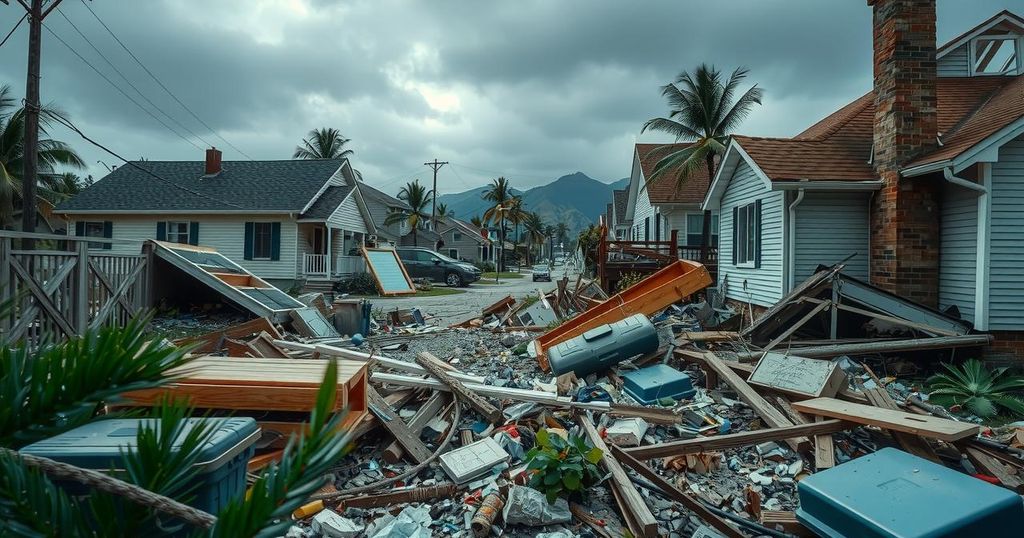The 2024 Atlantic hurricane season concluded with 11 hurricanes, exceeding the average seven. This season was marked by notable events including the record-setting Hurricane Beryl in June and the deadliest Hurricane Helene in September. With significant damages, especially in North Carolina, and the influence of climate change on storm formation, the season served as a stark reminder of the escalating risks associated with extreme weather events.
The 2024 Atlantic hurricane season concluded with significant impact, featuring 11 hurricanes, surpassing the average of seven storms per season. This active season prompted meteorologists to describe it as “crazy busy,” driven largely by unusually warm ocean temperatures. The season witnessed eight hurricanes making landfall across various locations, including the U.S., Bermuda, Cuba, the Dominican Republic, and Grenada.
Among the notable events, Hurricane Beryl emerged as the first recorded Category 4 hurricane in June, impacting Grenada before continuing to Jamaica and leaving fatalities and destruction in its wake. July saw the formation of the earliest recorded Category 5 hurricane in the Atlantic. In September, Hurricane Helene proved devastating, claimed more than 200 lives, and inflicted approximately $48.8 billion in damages across several southeastern states, including North Carolina.
October welcomed Hurricane Milton, which rapidly intensified to 180 mph, marking it as one of the strongest hurricanes in the Gulf of Mexico. The affected regions experienced rainfall significantly beyond historical averages during this peak hurricane season. November’s Hurricane Rafael, reaching 120 mph, demonstrated late-season intensity, hitting Cuba while it was still grappling with recovery from Hurricane Oscar. The escalating severity and frequency of these storms are intertwined with climate change, according to hurricane researcher Brian McNoldy, who noted that warmer seas are instrumental in these early and late occurrences.
The impacts observed in the 2024 hurricane season underscore critical concerns regarding meteorological patterns and climate phenomena exacerbated by human-induced warming. As the season ends, the assessments highlight the urgent need for comprehensive climate strategies to mitigate such extreme weather events in the future.
The Atlantic hurricane season typically runs from June 1 to November 30, during which the ocean conditions are generally most favorable for tropical storm formation. The 2024 season has been particularly noteworthy due to an increased number of severe storms, attributed to rising oceanic temperatures influenced by climate change. This season starkly illustrates the relationship between human-induced climate warming and the intensity of weather-related disasters, which many researchers are beginning to correlate. Meteorological analysis by experts such as Brian McNoldy from the University of Miami provides insight into how climate change factors into the formation of hurricanes. The occurrence of an early Category 4 hurricane in June and a late Category 5 hurricane in July is unprecedented and suggests a shift in when and how hurricanes may occur in the Atlantic basin.
The conclusion of the 2024 Atlantic hurricane season highlights a significant trend towards more extreme weather events, as evidenced by the unprecedented number of hurricanes and their devastating impacts. Meteorological experts emphasize the role of climate change in amplifying the severity and frequency of these storms. As illustrated by Hurricanes Helene and Milton, the socio-economic ramifications are profound, reinforcing the urgency for adaptive measures to mitigate future damages and ensure preparedness against possible intensifying hurricane seasons.
Original Source: www.wtvr.com






